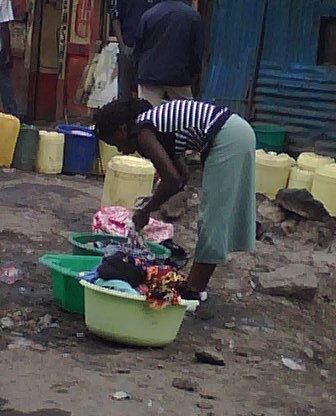
Felix, one of the contestants from Huruma Ward
The National Youth Council elections are going across the country and Mathare held its elections for the delegates. In each ward, youth gathered to elect their choice peacefully. At Mabatini ward, 13 youth came out seeking to be elected as youth delegate. In each sub location, 3 youth delegate will be elected.
While in all the polling station there was high presence of women, very few of them were seeking position. For instance, in Mabatini out of the 13 contestants, only 3 women were on the list seeking to be elected. In Huruma, the situation was the same, with only 4 women among 16 contestants. Given that there is low women participation, this might affect articulation of women issues at higher level.
 The election has been so peacefully against to what was expected. At Huruma, one of the contestants Mr. Felix, 24 yrs was happy with the arrangement and was optimistic that he will be elected. The selection of administration camps as voting sites has greatly contributed to the elections being held peacefully.
The election has been so peacefully against to what was expected. At Huruma, one of the contestants Mr. Felix, 24 yrs was happy with the arrangement and was optimistic that he will be elected. The selection of administration camps as voting sites has greatly contributed to the elections being held peacefully.
When it came to mobilizing people most people were using mobile phone and texting through SMS service. Printing of poster was common combined with collection of mobile phone numbers. When I visited Huruma polling station, I found Felix calling people to remind them about the day.
The situation on ground revealed that the elections of youth delegates in Mathare being less tribal and this is one of the lessons that the political parties can learn from the youth elections. The election is driven by how well known one is for doing things than money politics.
However there is generally low voter turn-out by the youth. This could be partly attributed to low publicity of the elections by the Ministry of Youth and the local administration. Also the election being held on a working day has locked out youths attending colleges or those working.
From the start of youth election, there was very little interest civil society organizations which conduct monitoring of elections or promote voter registration. Part of Yes We Can Fund by the USAID should have been invested in the youth election. – Simon










